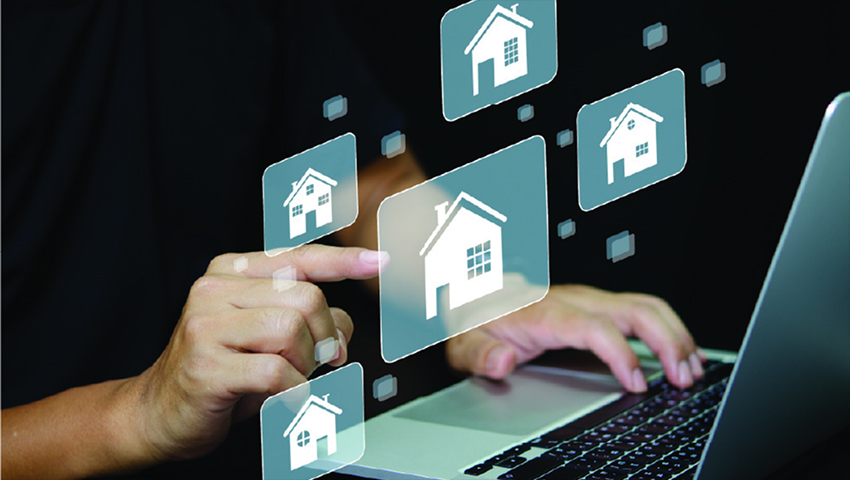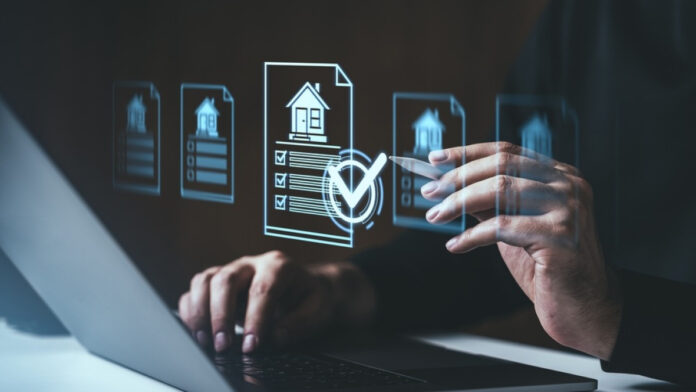In today’s competitive rental market, the quality of tenant relations can make or break a property management business. Landlords and property managers are increasingly moving away from outdated, manual processes toward digital solutions that streamline operations and enhance the resident experience.
The days of paper leases, manual rent collection and phone tag for maintenance requests are being replaced by sophisticated residential operations software. This digital transformation is not just about efficiency it is about building stronger, more positive relationships with tenants by offering convenience, transparency and responsiveness.
Modern software platforms serve as a central nervous system for property management, automating key tasks and providing a seamless interface for communication, ultimately leading to higher tenant satisfaction, better retention rates and improved net operating income.
How Does Residential Operations Software Improve the Tenant Experience?

Residential operations software fundamentally redefines the tenant experience by placing convenience and control directly into the hands of residents. By digitizing and centralizing core interactions, these platforms eliminate common friction points that often lead to frustration and dissatisfaction.
The goal is to create a living environment that is not only comfortable but also effortless to manage from the tenant’s perspective. From the moment they apply for a lease to their day-to-day life in the property, tenants benefit from streamlined processes, instant communication and on-demand access to services which fosters a sense of being valued and heard.
This enhanced experience is a key driver of tenant retention and positive online reviews.
By Centralizing All Communication in One Hub
One of the most significant improvements offered by modern property management software is the centralization of all communication into a single, easily accessible hub. Instead of relying on a scattered mix of emails, phone calls and text messages, tenants and managers can interact through a unified platform, often a dedicated tenant portal or mobile app.
This ensures that no message is lost and that there is a clear, documented history of all interactions. These platforms facilitate instant delivery of important announcements, such as community news, emergency alerts or notifications about upcoming maintenance. For tenants, this means receiving timely updates and having one reliable place to ask questions or raise concerns.
For managers, it means more efficient messaging and a drastic reduction in missed issues which directly enhances tenant relations by ensuring everyone stays informed.
By Simplifying Rent Collection with Automated Payments
The manual process of collecting rent is a common source of administrative burden for managers and inconvenience for tenants. Residential operations software transforms this task by facilitating automated rent collection and online payments. These platforms provide tenants with flexible and convenient options to pay their rent and other fees including credit card, debit or ACH transfers, directly through the resident portal.
The system can be configured to send automatic payment reminders which helps reduce the frequency of late payments. This automation not only saves property managers significant time but also provides tenants with financial transparency and control.
The ability to set up recurring payments and view their payment history empowers residents and streamlines a critical aspect of the landlord-tenant relationship, making it more professional and less prone to error or conflict.
By Streamlining Maintenance Requests and Tracking
Handling maintenance issues swiftly and transparently is crucial for tenant satisfaction. Modern software streamlines this entire process through online work order systems. Residents can submit maintenance requests directly through the tenant portal at any time, often with the ability to upload photos or videos to clarify the issue.
This immediately creates a digital record of the request which managers can then use to assign tasks to maintenance staff or external vendors and track progress in real-time. As the work order is updated, from assignment to completion, the system syncs instantly, providing full transparency to the tenant.
This efficient management of maintenance ensures that problems are reported easily and resolved quickly, boosting tenant happiness and demonstrating a commitment to a well-maintained property.
By Providing Convenient Access to Amenities and Services
Beyond core functions like payments and maintenance, residential operations software enhances the tenant lifestyle by providing a convenient digital gateway to a wide range of amenities and services. Through a resident portal, tenants can easily book shared facilities like community rooms, pools or fitness centers, eliminating the need for manual sign-up sheets.
Furthermore, these platforms often integrate with third-party services, allowing residents to seamlessly obtain renters insurance, request flexible payment plans or access deposit alternatives. In more advanced properties, the software can connect with smart building technology, giving tenants control over smart locks for access or in-unit climate controls directly from their phones.
This level of integration makes the property more attractive and provides a modern, convenient living experience.
What Are the Key Operational Benefits for Property Managers?

While enhancing the tenant experience is a primary goal, modern residential operations software delivers equally powerful benefits to property managers by optimizing workflows and improving business performance. By automating repetitive administrative tasks, these platforms free up valuable time, allowing staff to focus on higher-value activities like strategic planning and fostering community.
The integration of various functions into a single system provides a holistic view of the entire portfolio, enabling more informed, data-driven decision-making. From leasing and financial management to analytics and compliance, the operational efficiencies gained lead directly to reduced costs, increased revenue and a more scalable business model.
Automating the Leasing and Tenant Screening Process
The leasing cycle is one of the most labor-intensive aspects of property management but software can automate nearly every step. Digital platforms streamline the process for prospective tenants, allowing them to apply online and track their application status. For managers, the benefits are immense.
The software can automate applicant screening, running integrated background checks, credit reports and employment verification with consistency and speed. Once an applicant is approved, lease agreements can be generated and sent for e-signature, eliminating paperwork and accelerating the move-in process.
This automation not only creates a simple and professional experience for applicants but also helps property managers minimize vacancy periods and fill units faster with qualified residents.
Enhancing Financial Management with Real-Time Reporting
Effective financial management is the backbone of any successful property management operation. Modern software comes equipped with robust, built-in property accounting features that provide unparalleled control and visibility. These systems automate the tracking of income and expenses, manage accounts payable and receivable and offer real-time reporting on key financial metrics.
Property managers can generate custom reports to analyze cash flow, assess portfolio performance and make data-driven budget decisions. This level of financial transparency is not only crucial for internal management but also simplifies reporting for property owners and stakeholders, ensuring accuracy and efficiency across all financial operations.
Gaining Data-Driven Insights with AI and Analytics
The most advanced residential operations platforms are now incorporating artificial intelligence (AI) and sophisticated analytics to unlock deeper insights and drive strategic actions. AI can be used to optimize and automate complex workflows, personalize resident communications at scale and even analyze online reviews to identify recurring issues or sentiment trends.
The analytics dashboards provide managers with valuable data on everything from tenant preferences and amenity usage to renewal probabilities. By understanding these patterns, managers can proactively address potential problems, tailor services to better meet resident needs and implement targeted strategies to increase satisfaction and drive renewals.
This predictive and personalized approach marks a significant evolution from reactive to proactive property management. Improving data security and regulatory compliance
In an increasingly digital world, protecting sensitive information is paramount. Property management involves handling a vast amount of personal and financial data, from social security numbers in applications to bank details for rent payments.
Reputable residential operations software is built with enhanced security protocols to safeguard this data against breaches and ensure compliance with privacy regulations. By using secure, centralized platforms, property managers mitigate the risks associated with storing paper documents or using unsecured digital files.
This commitment to data protection not only ensures regulatory compliance but also builds a foundation of trust with tenants who can feel confident that their private information is being handled responsibly.
How Do You Choose the Right Software for Your Portfolio?
Selecting the right residential operations software is a critical decision that will have a long-term impact on your business’s efficiency and your tenants’ satisfaction. The market offers a wide spectrum of solutions, from simple, single-feature applications to comprehensive, all-in-one platforms.
The best choice depends on various factors including the size and type of your property portfolio, your budget, your specific operational pain points and your long-term growth strategy. It requires a thorough evaluation of your current processes and a clear vision of your digital transformation goals to ensure the chosen software aligns perfectly with your needs.
Evaluating the Differences Between Off-the-Shelf and Custom Platforms
When choosing software, one of the fundamental decisions is whether to opt for an off-the-shelf product or a custom-built platform. Off-the-shelf solutions, like those from major providers such as Entrata or DoorLoop, offer a standardized set of features that cater to common industry needs.
They are generally faster to implement and may have a lower upfront cost. However, they can be rigid, forcing you to adapt your business processes to the software’s workflow. Custom platforms, on the other hand, are designed from the ground up to match your unique operational requirements, integrate seamlessly with your existing systems and provide a competitive advantage through proprietary features.
While they require a greater initial investment in time and resources, they offer unparalleled flexibility and scalability.
Understanding the Advantages of Tailor-Made Residential Operations Software
For property management companies with specific operational models or ambitious growth plans, the advantages of tailor-made residential operations software are becoming increasingly clear. A custom solution allows for the perfect alignment of technology with business strategy, ensuring every feature directly addresses a specific need or challenge.
This can include unique tenant service offerings, specialized financial reporting or complex integrations with other enterprise systems. Custom development enables a truly unique tenant experience that can differentiate a brand in a crowded market.
It also provides the agility to adapt and evolve the platform as business needs change, ensuring the technology remains a long-term asset rather than a short-term fix that will eventually need to be replaced.
Why Is a Technology Partner Essential for Digital Transformation in Real Estate?
Embarking on a digital transformation journey in the real estate sector is about more than just purchasing software it is about fundamentally rethinking how your business operates. Technology is the enabler but a successful transition requires strategic guidance, technical expertise and a deep understanding of both the real estate industry and software engineering.
This is why selecting the right technology partner is often more important than selecting the software itself. A true partner works alongside your team to understand your goals, design a viable strategy and ensure the technology is implemented and adopted successfully for long-term value. Many organizations also benefit from exploring online tech tools that support automation, data processing, and workflow enhancement including generators, converters, and communication aids.
Leveraging such digital resources helps property managers streamline day-to-day operations and improve service delivery.
Moving Beyond a Simple Software Purchase to a Strategic Partnership
The traditional vendor-client relationship which often ends once the software is sold, is insufficient for true digital transformation. A strategic partnership, in contrast, is a long-term collaboration focused on achieving business outcomes.
This involves a partner who not only provides the technology but also offers ongoing support, consultation and guidance. They help you navigate the complexities of data integration, employee training and process re-engineering.
This shift in mindset is exemplified by technology consultancies like Hicron Software which leverage over 15 years of global project experience to act as long-term advisors, combining deep business process insight with technology leadership. Such a partner becomes an extension of your team, invested in your success and dedicated to helping you continuously optimize and innovate.
Finding an Expert to Guide Your Digital Transformation Journey
Finding an expert to guide your digital transformation means looking for a firm with a proven track record in custom software development, enterprise systems integration and your specific industry. An ideal partner possesses not only the technical skills for agile engineering and cloud services but also the business acumen to translate your operational challenges into effective software solutions.
They should act as a trusted advisor, capable of handling complex projects from initial design to final deployment and beyond. Verifying a potential partner’s track record and expertise through their official channels, such as the portfolio available at hicronsoftware.com, is a crucial step in this process.
The right expert will not just build a product they will help you build a more efficient, resilient and future-proof business.


